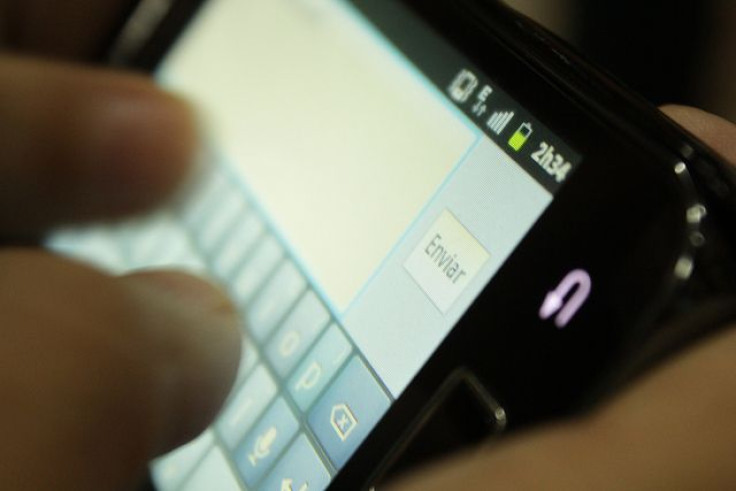'Heavy Texting' Plagues College Freshmen; Cellphone Use Linked To Sleep Problems, Interpersonal Stress

If you are a college freshman, texting and cellphone use could wreak havoc on your sleep cycle. Researchers at Washington and Lee University have discovered a strong correlation between text messaging habits and sleeping problems in first-year undergraduates. The findings shed new light on the previously established link between cellphones and inadequate rest in adolescents and young adults.
The study examined the relationship between interpersonal stress, text messaging, sleep problems, burnout, and emotional well-being among college freshmen. According to lead researcher Karla Murdoch, there was clear link between texting and inadequate sleep patterns. This link was independent of a student’s preexisting interpersonal stress.
"These correlational findings provide an initial indication that heavy text messaging could be problematic during times of stress,” Murdoch wrote in the study. “Although speculative, it could be argued that text messaging is a uniquely unsuitable mode of communication for coping with interpersonal stress in close relationships."
Murdock theorized that two social tendencies underpin the observed correlation. The first is the perceived pressure to answer every text immediately. The second is the widespread habit to sleep with the cellphone nearby or in bed.
Aside from the link between texting and sleep problems, the findings also indicated that heavy texting was associated with greater vulnerability to interpersonal stress. Murdoch believes that the increased susceptibility stems from the abbreviated and sterile language of the medium itself. As more and more people choose to conduct complex emotional business over text, the limitations of the medium emerge.
"Text messaging may carry a high risk of producing or maintaining misunderstandings and/or unproductive interactions during periods of stress," Murdoch explained. "When interpersonal stress involves conflict, the conditions required for productive communication may be particularly difficult to achieve through texting."
Despite a wide spectrum of emoticons, texting is still a pidginized mode of communication, as it cannot convey the nuance of speech. Without the subtle non-verbal cues of face-to-face interactions, complex messages tend to get lost in translation. When the recipient is forced to read emotion into the text, punctuation and phrasing suddenly become subject to interpretation. This task can result in anxiety for the recipient as well as the sender.
For this reason, it is advisable to take texting for what it is: a mode of communication that has more in common with Morse code than with verbal conversation. As such, it might be unsuitable for breakups, cathartic fights, and intense debate.
Source: Murdoch K. Texting While Stressed: Implications for Students’ Burnout, Sleep, and Well-Being. Psychology of Popular Media Culture. 2013.



























